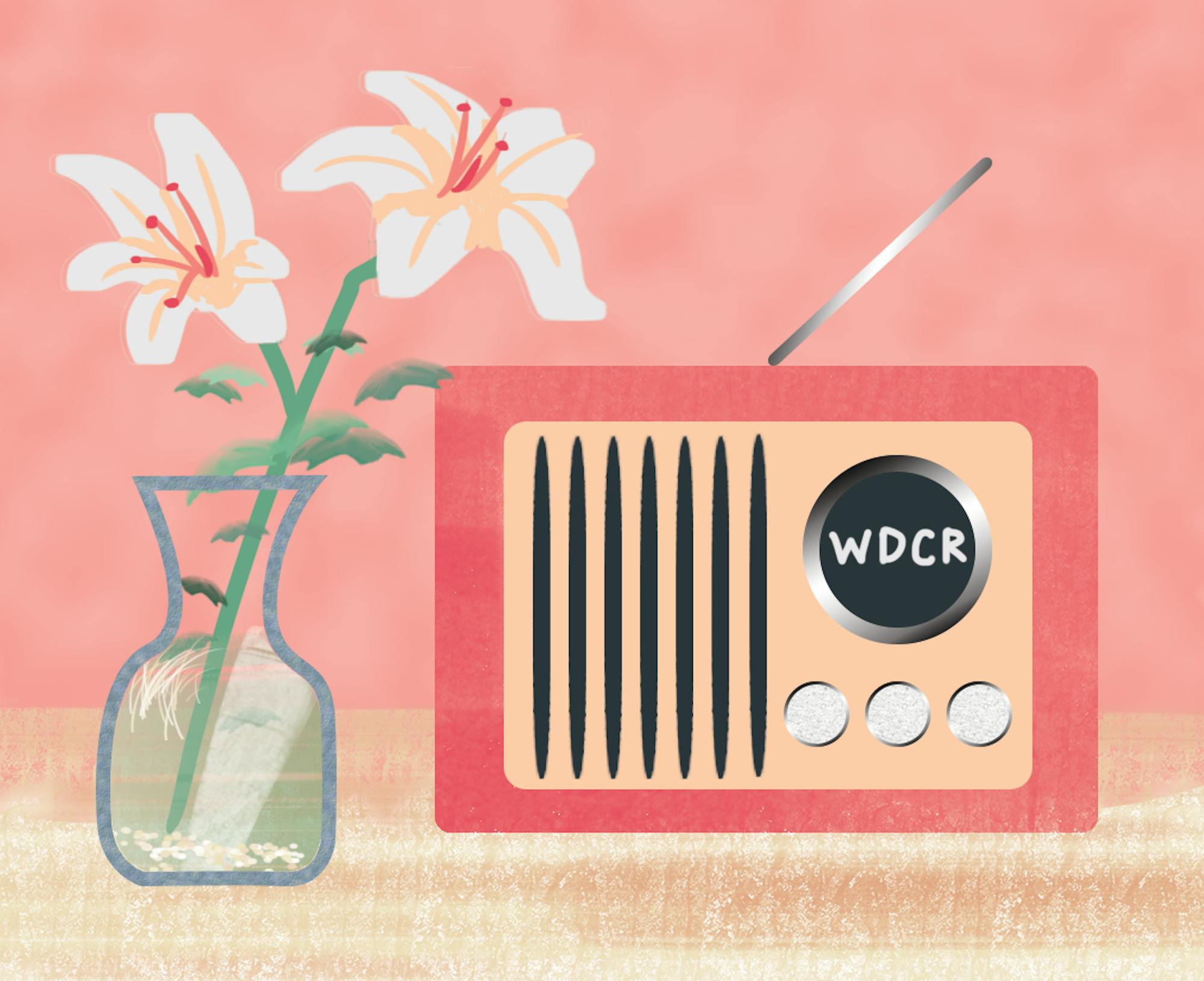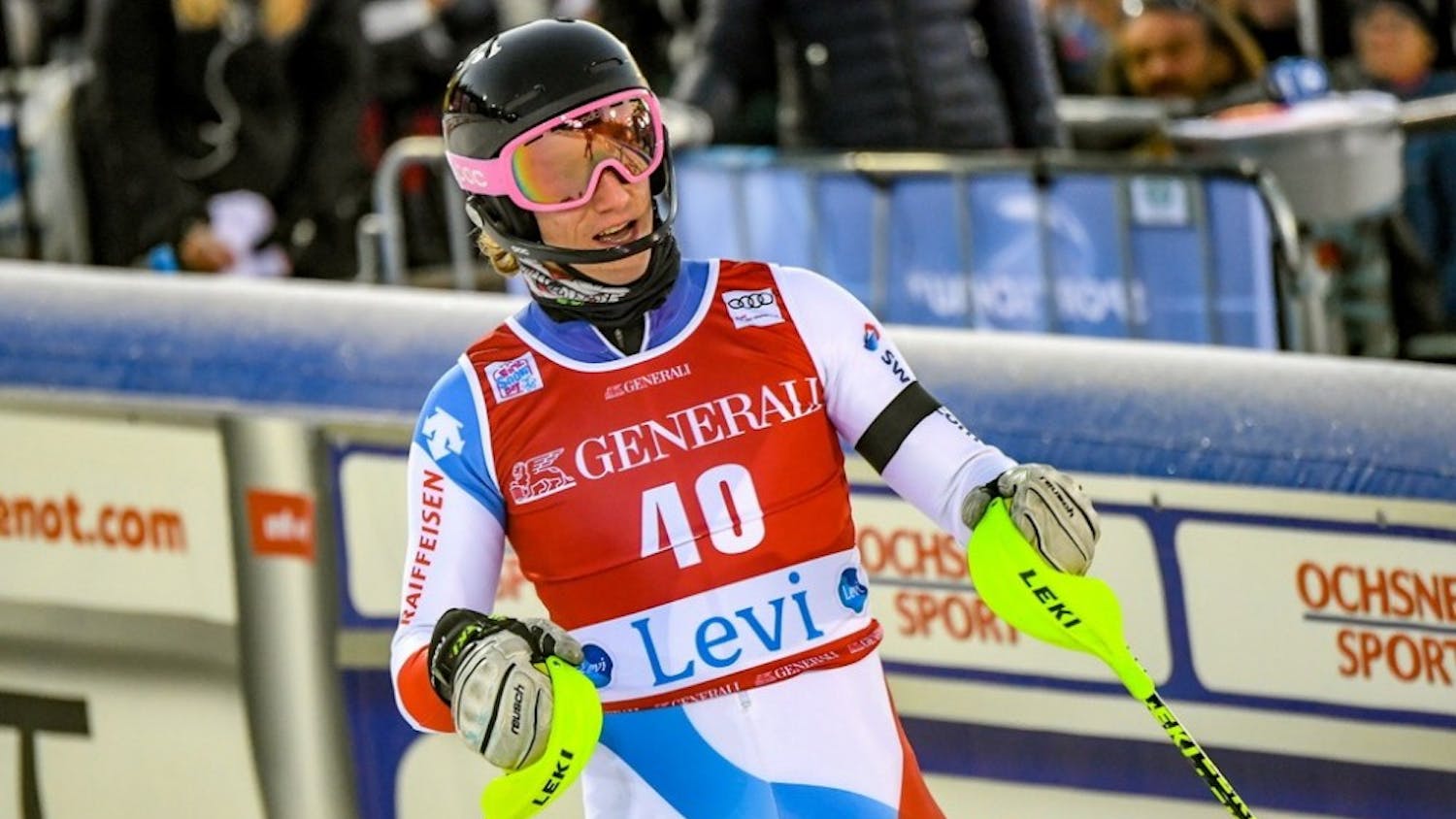The everyday comforts of Dartmouth are few and far between these days. Writing is harder outside of Sanborn, a trip to the backyard doesn’t have the same zest as a DOC hike and no matter how much flour you use, your scones never taste quite like they do at KAF. However, no matter how far away from Hanover you feel, you can still hear the voices of home on Dartmouth College Radio.
Tuesday through Sunday, hosts share music, stories and life-related musings with listeners around the world. Despite the difficulties of operating away from servers in the DCR studio on the third floor of Robinson Hall, radio station members have gone to great lengths to keep student-produced shows on air.
Through a process engineered by program director Ray Crist ’22, audio routes through several locations before it reaches listeners; hosts’ voices travel from their homes to a desktop computer in Maryland, managed by Crist, before being sent to servers on the Eastern seaboard, back up through campus and onto the internet.
Crist prepared the technical arrangement in the final days of winter term, anticipating the College’s announcement of remote learning. DCR’s smooth transition into the remote term is in large part thanks to his quick thinking and diligence. Crist must take his post at the computer every half hour while students are on air, keeping hosts connected and transitioning between shows.
“It’s pretty amazing,” general manager Chris Cartwright ’21 said of Crist’s technical wizardry. “Ray running the station is the only reason we can still [broadcast].”
Though the complex set-up often requires Crist to base his schedule around the day’s broadcast lineup, he said that the community offered by the radio station is well worth the effort.
“It’s a lot easier to feel connected to the bigger Dartmouth community,” Crist said. “On our station, hosts talk like they would talk to a friend … You can just click play and feel a little less alone.”
Crist said that listener numbers have been consistently high through the spring quarter, and the station’s website saw twice its usual traffic during the first week of the term.
“It’s the perfect moment for radio,” Cartwright said. “Most people are isolated at home and want to connect with their friends.”
For social director Gabi Cooper ’21, the term’s remote format is an opportunity to develop the radio station’s presence at Dartmouth.
“We’re really trying to make this count for something because we don’t know when we’ll be back on campus. We’re talking to more students and discussing new ideas,” Cooper said.
Among DCR’s plans to integrate the station with the student body are potential collaborations with the theater department, live student DJ hours and virtual concerts. Though planning special events in a remote format poses difficulties, DCR is eager to take on the challenge. Weekly online meetings have channeled the directorate’s focus and renewed members’ commitment to the station.
“We’ve been working more as a team,” Cooper said. “We’re a cohesive unit. Being far apart, it’s harder to be only tangentially involved.”
Cartwright echoed the statement. “Zoom makes directorate meetings more efficient because we get right down to business and talk about what we need to talk about. We’ve also found ways to hold more social events,” Cartwright said.
Socially, the radio station aims to provide as much comfort to members as it does to listeners. Cooper has been hard at work scheduling Zoom game nights for the radio community, making sure team members get their daily dose of human interaction. She has even taken on a radio show of her own.
“When I was back on campus, I did [radio] because it’s nice to be involved, but now I think I’m doing it for a much more intrinsic reason. I like shouting into the void,” Cooper said.
With radio, when one shouts into the void, the void listens. Sometimes, it even shouts back. A virtual chat room on DCR’s website allows listeners to talk to each other and interact with hosts in real time.
“It feels a lot like you’re hanging out with friends,” Cartwright said.
Crist echoed similar sentiments.
“It’s easy to withdraw and to lose touch with people,” Crist said. “To have this thing that forces me to get out of my shell — and that makes it easier for other people to get out of the quarantine bubble — has been really awesome.”
The voices of DCR breach distance, both physical and social, to remind us that Dartmouth is not simply a campus; it is a set of connections that transcends locale.




